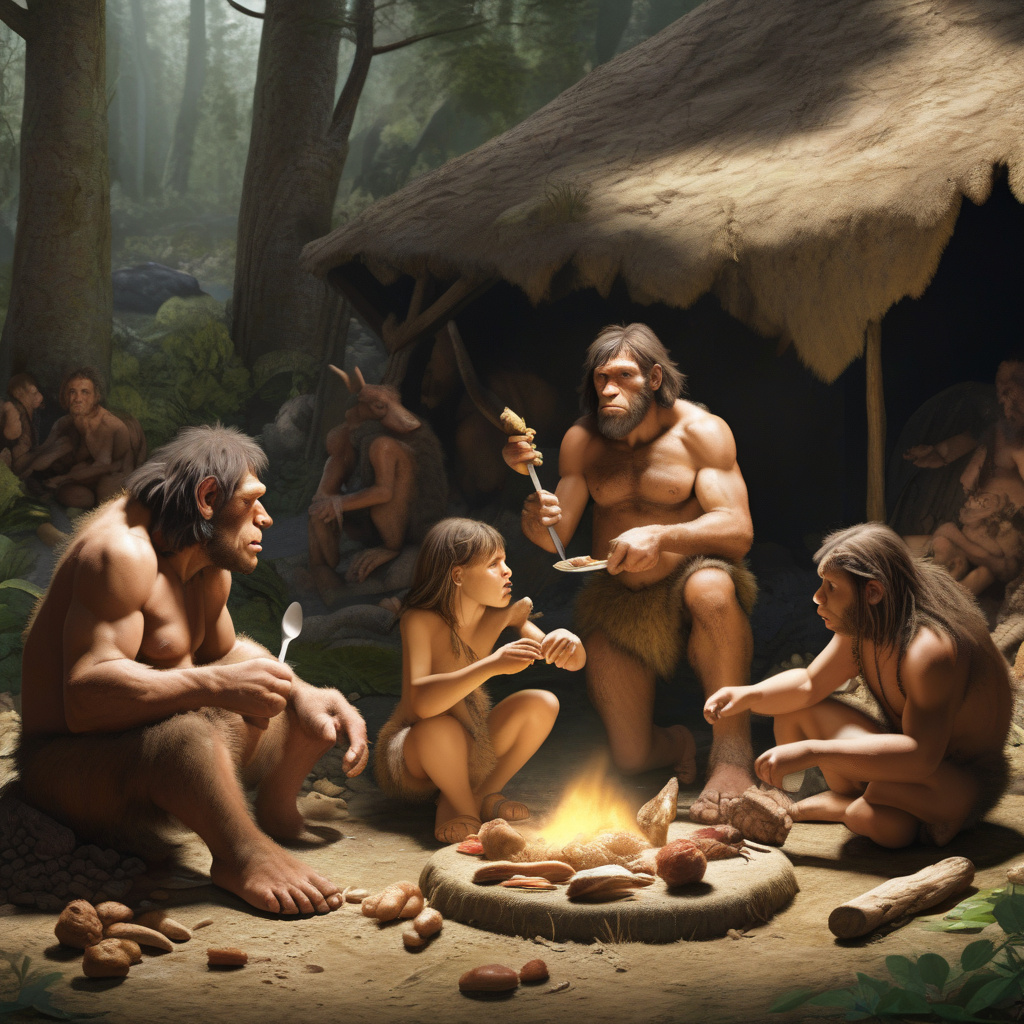Family Recipes Through the Ages: Neanderthals’ Culinary Secrets Revealed
It turns out, Neanderthals likely had something akin to “family recipes.” Researchers from the Hebrew University of Jerusalem and the University of Haifa have uncovered fascinating information about our ancient human relatives’ culinary habits. The study reveals that Neanderthals not only cooked animals for consumption but also had unique ways of preparing them, indicating a form of passed-down knowledge similar to what we now call family recipes.
The research, published in the scientific journal “Scientific Reports,” sheds light on the sophisticated cooking techniques of Neanderthals. By analyzing the remains of charred bone fragments from two prehistoric sites in present-day Israel, archaeologists discovered distinct patterns of burn marks. These patterns suggest that Neanderthals intentionally selected specific bones, likely to extract bone marrow through a complex cooking process.
Dr. Ruth Blasco, the lead researcher of the study, explains that the Neanderthals’ cooking methods involved placing the selected bones directly in the fire. This technique allowed them to control the temperature and time needed to break the bones and extract the nutritious marrow inside. The repetitive nature of these burn patterns indicates a consistent approach to food preparation, hinting at a form of culinary tradition within Neanderthal groups.
What is particularly intriguing is the similarities between Neanderthal cooking practices and modern-day culinary techniques. Just like how a family recipe is passed down through generations, Neanderthals seem to have shared and preserved their knowledge of food preparation within their communities. This finding challenges previous assumptions about the cognitive abilities and social behaviors of our ancient relatives, highlighting their complexity and cultural sophistication.
Furthermore, the study offers insights into the dietary habits of Neanderthals and their adaptation to different environments. By efficiently extracting nutrients from bone marrow, they could supplement their diet with essential fats and proteins, contributing to their survival and evolutionary success. This ability to innovate and refine cooking techniques demonstrates a level of intelligence and resourcefulness that was previously underestimated in Neanderthal populations.
As we reflect on this groundbreaking research, it prompts us to reconsider our perceptions of ancient civilizations and the origins of culinary traditions. The notion of family recipes, which we often associate with cherished dishes and shared memories, appears to have roots that extend far back in human history. From the hearths of Neanderthal caves to the kitchens of modern households, the practice of passing down cooking knowledge seems to be a timeless and universal phenomenon.
In conclusion, the revelation of Neanderthals’ “family recipes” unveils a new dimension of their cultural legacy and culinary expertise. By recognizing the sophistication of their cooking methods and the transmission of culinary traditions within their communities, we gain a deeper appreciation for our ancient ancestors’ ingenuity and adaptability. As we savor our favorite family recipes today, let us remember the Neanderthals and their innovative approach to food preparation, which has undoubtedly influenced our culinary heritage in ways we are only just beginning to understand.
Neanderthals, CulinaryHistory, FamilyRecipes, EvolutionaryCuisine, AncientCookingTraditions











